Beyond Boundaries: Leveraging Space Technologies for Better Healthcare
Haikou, Hainan, China — Dr. Shaoren Gou, Canada & World Report — On December 12, 2024, the International Health Forum: Space Technology and Human Health successfully concluded as a key component of the 2024 International Symposium on the Peaceful Use of Space Technology (IPSPACE 2024), held from December 10 to 12, 2024. The forum, hosted at the Hainan International Convention and Exhibition Centre, explored the intersection of space technology and human health, bringing together global leaders in medicine, biotechnology, and space exploration.
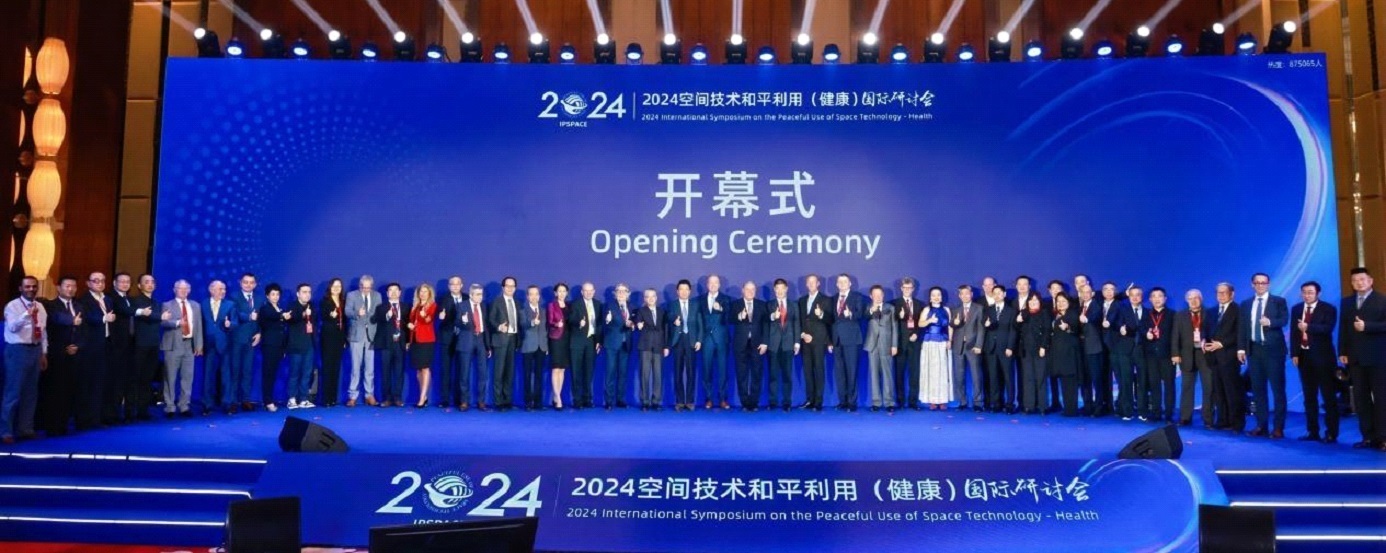
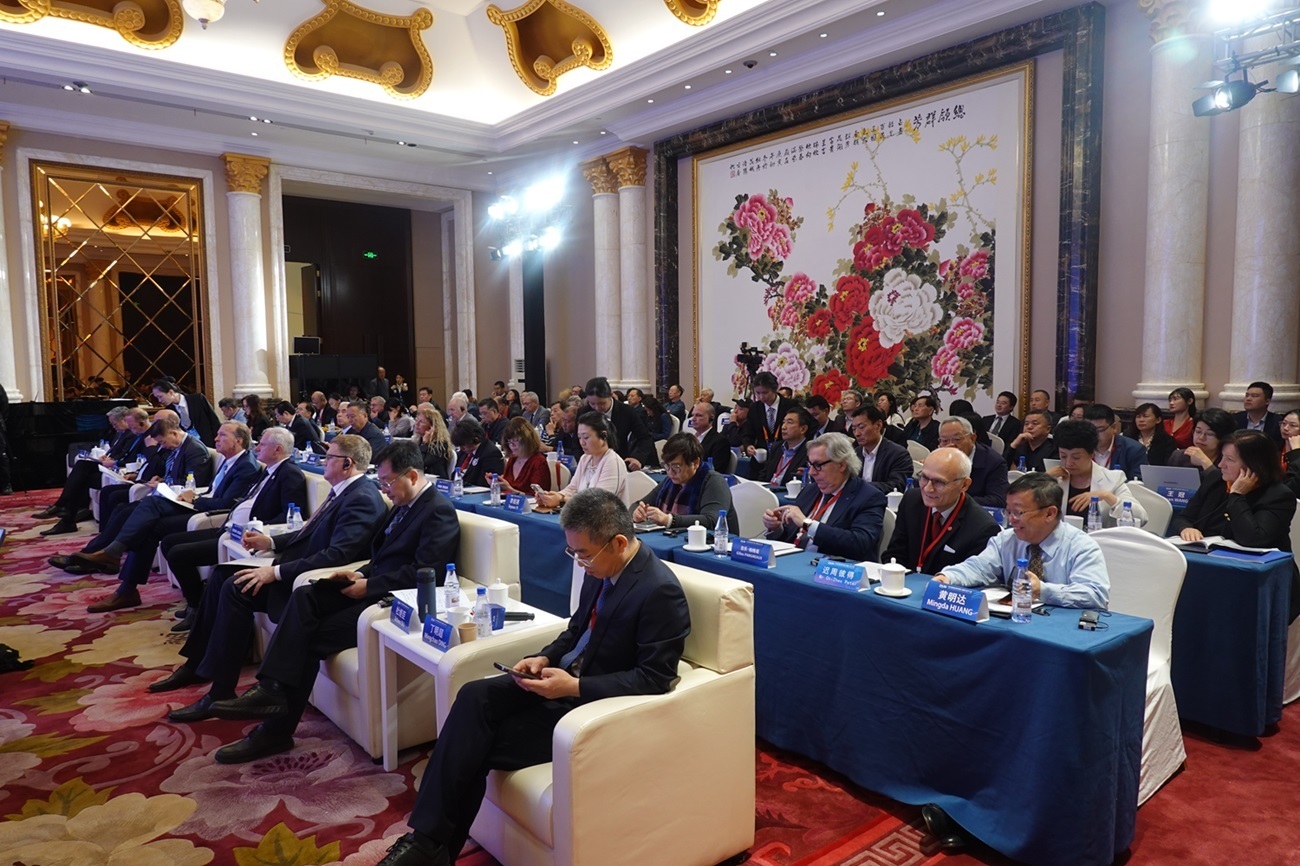
Scientists from 15 Countries Gather in Hainan to Discuss the Peaceful Use of Space Technology
The symposium attracted academicians, scientists, policymakers, industry leaders, and astronauts from 15 countries, including the United States, Russia, France, the United Kingdom, and South Korea. They gathered in Haikou, China, to explore the peaceful use and future development of space technology. The event was co-organized by the International Peace Alliance (Space), an observer of the UN Committee on the Peaceful Uses of Outer Space, in collaboration with various Chinese institutions, including the China Electronics Chamber of Commerce, the Chinese Society of Remote Sensing Applications, the China Satellite Navigation and Positioning Association, the China Communications Industry Association, the Hainan Aerospace Information Research Institute, and the Hainan Aerospace Technology Innovation Center. The symposium aimed to foster international cooperation and advance dialogue in the peaceful applications of space technology.
Pioneering Health Innovations Through Space Technology
The forum highlighted how advancements in space technology can revolutionize healthcare on Earth. From satellite-based health monitoring systems to breakthroughs in space medicine and biotechnology, discussions emphasized the practical applications of space research for human well-being. Delegates explored the effects of extreme space environments on biological systems and how these findings could be applied to improve diagnostics, treatment, and prevention strategies for global health challenges.
Keynote speaker Oleg Orlov, President of the Institute of Biomedical Problems (IMBP) of the Russian Academy of Sciences, outlined innovations in space biomedicine. His presentation focused on radiation safety measures for manned space missions, including ground-based experiments to shield astronauts from harmful cosmic radiation—a critical issue for interplanetary travel.
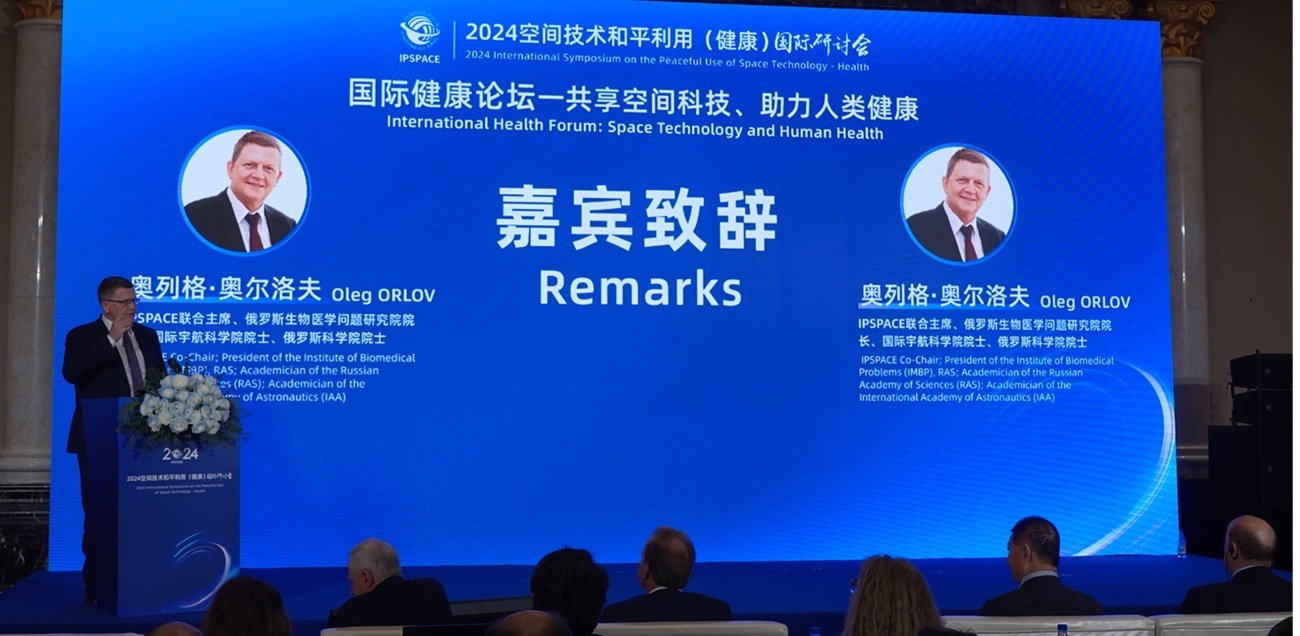
Huda M. Ayas, Associate Dean of the George Washington University School of Medicine, shared insights into the university’s international collaborations, including joint medical programs with China. Her presentation emphasized the role of artificial intelligence in early diagnostics, a field poised to benefit significantly from data collected via space technologies.
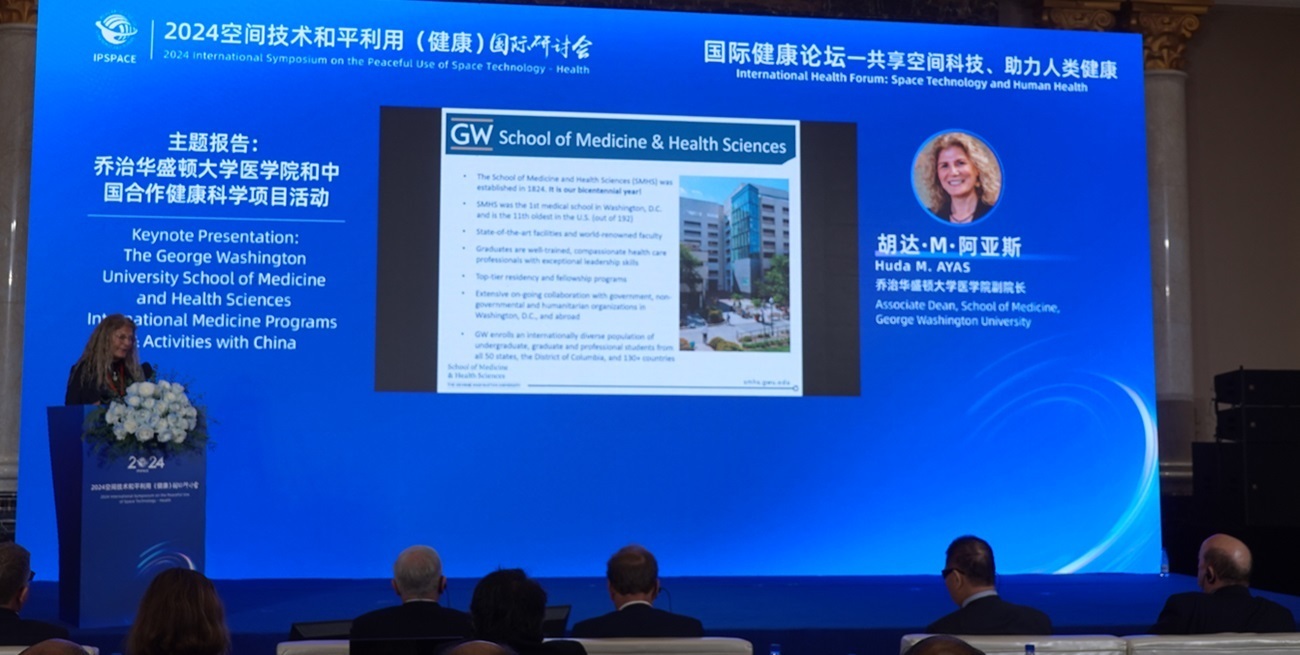
Bernard Foing, Executive Director of the International Lunar Exploration Working Group, provided a unique perspective on how analog astronaut missions, such as those conducted in lunar simulation environments, have contributed to understanding human health in space-like conditions. His talk linked these studies to potential healthcare innovations on Earth, particularly in remote and resource-limited areas.
Traditional Medicine Meets Advanced Space Technologies
The forum also spotlighted how traditional medical practices could benefit from technological advancements. Mingda Huang, Chair of the World Health Industry Conference’s Executive Committee, presented on integrating AI-based diagnostic tools with traditional Chinese medicine. This innovative approach aims to modernize healthcare systems while preserving cultural heritage, bridging ancient practices and cutting-edge science.
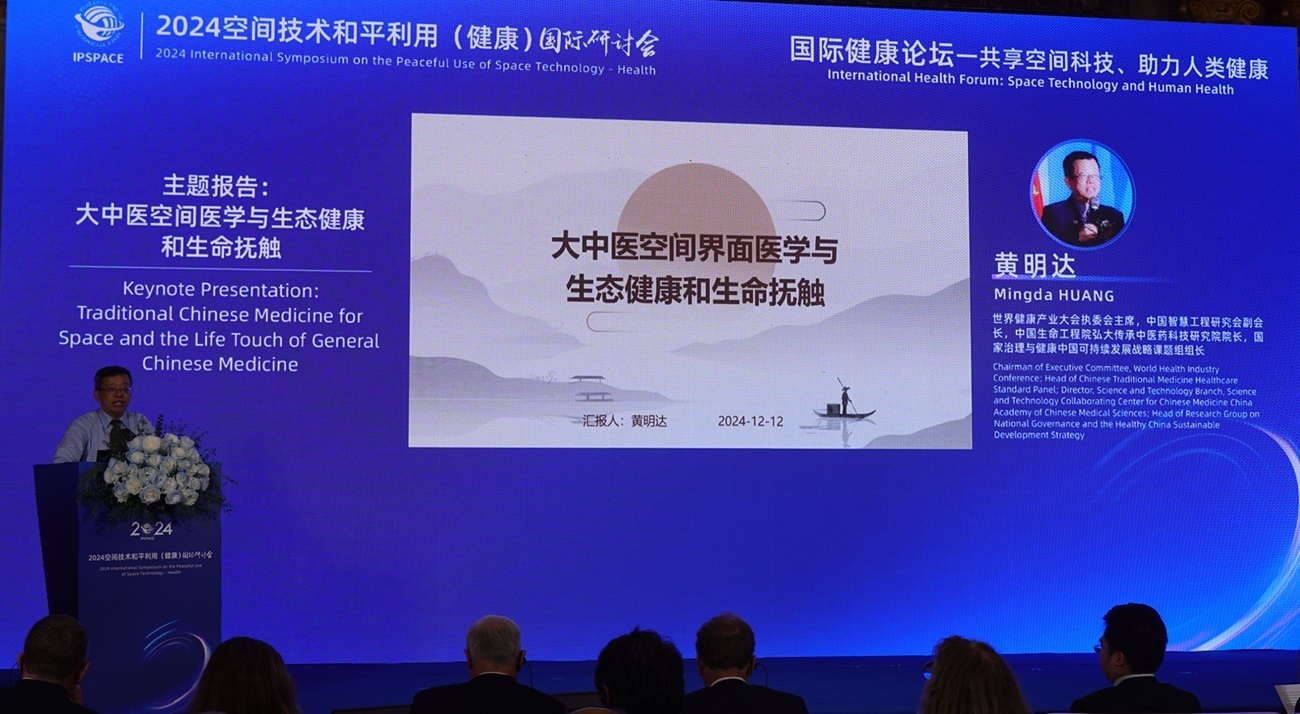
Insights from Astronauts and Scientists
South Korea’s first astronaut, Soyeon Yi, captivated attendees with her perspective on the physical and mental challenges of space travel. Drawing from her own experience, she underscored the importance of multidisciplinary collaboration in addressing space-related health issues and applying those lessons to terrestrial medicine.
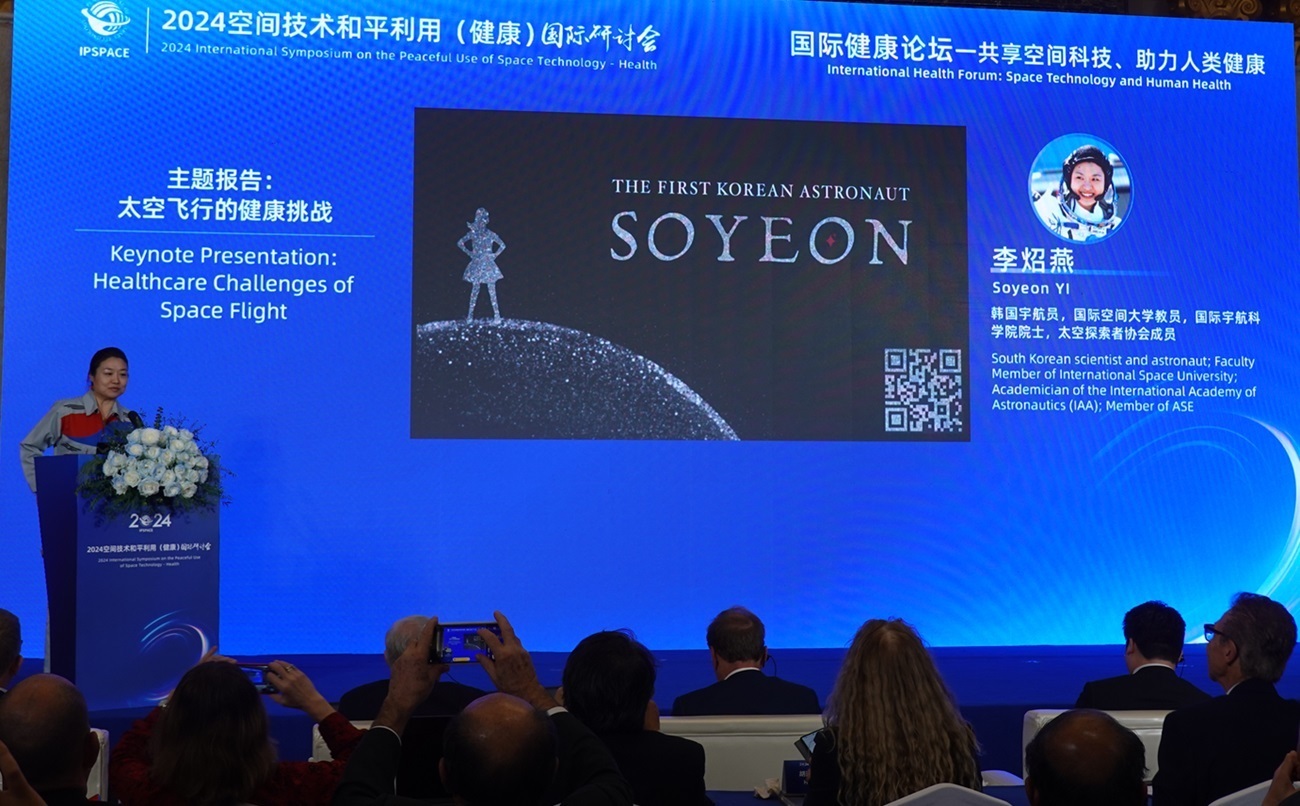
Vyacheslav Shurshakov, Head of the Radiation Safety Department at IMBP RAS, detailed advancements in shielding technologies and their implications for improving radiotherapy for cancer patients. By translating knowledge from space science to clinical applications, researchers are finding innovative solutions for some of humanity’s most pressing health concerns.
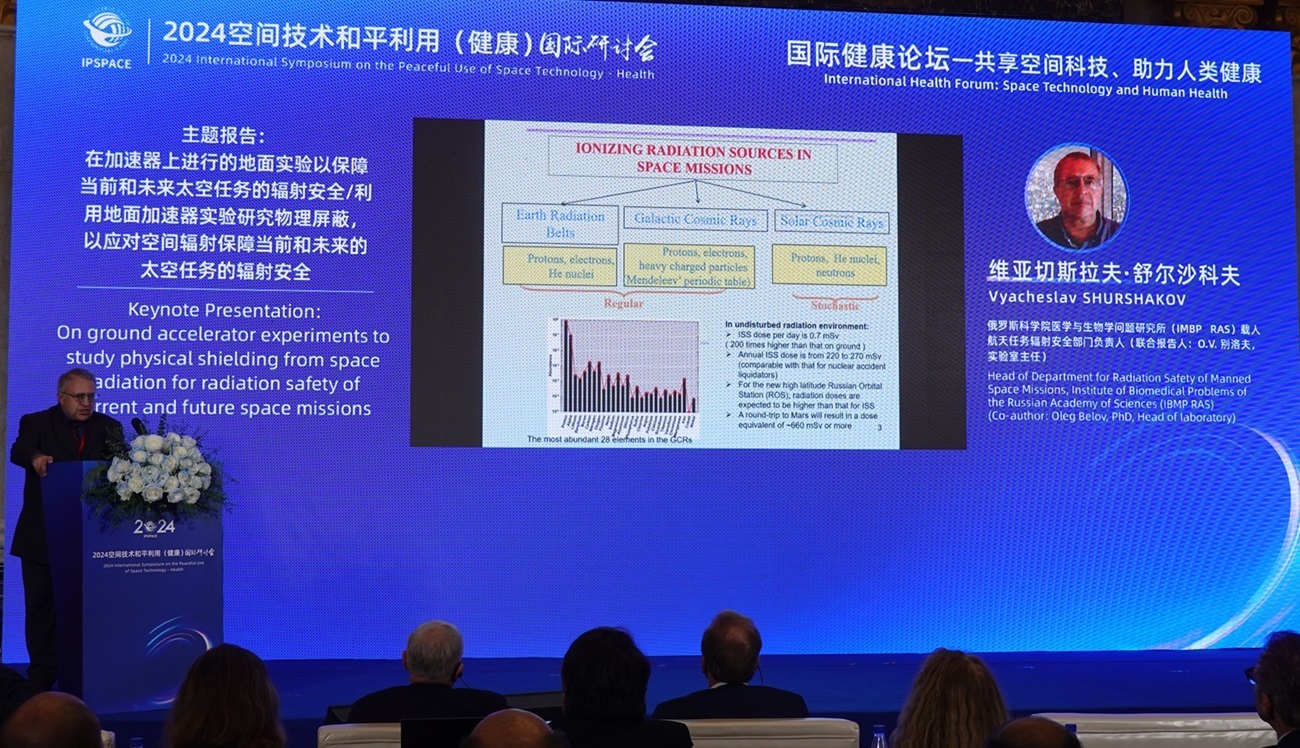
High-Level Discussions and Future Prospects
The event featured a high-level panel discussion moderated by Ping Zhao, former Director of the Cancer Hospital at the Chinese Academy of Medical Sciences. Panelists, including leading cardiologists, oncologists, and neuroscientists, debated how space technology could close gaps in healthcare access and equity. Mohamad Z. Koubeissi, Director of the Neuroscience Center at George Washington University, called for large-scale international collaborations to accelerate medical research and address complex diseases such as epilepsy.
Key topics included:
- AI-driven diagnostic tools for cardiovascular and neurological disorders.
- Space-based platforms for telemedicine and remote health interventions.
- Collaborative frameworks to enhance global public health standards through satellite data.
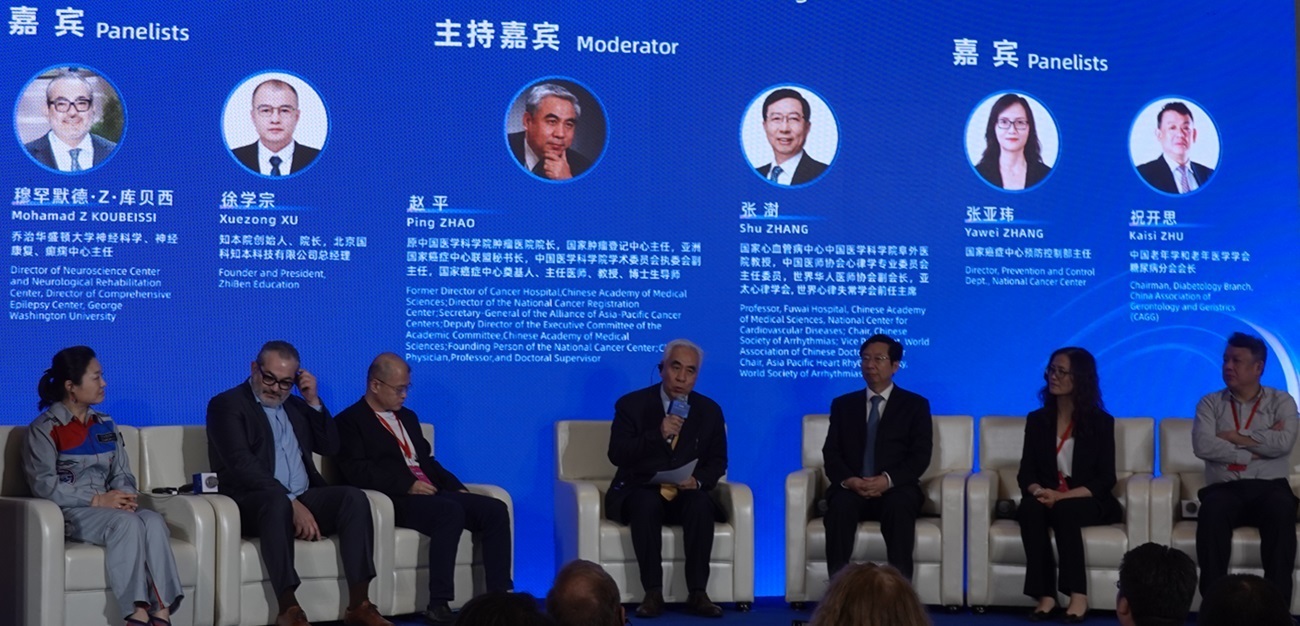
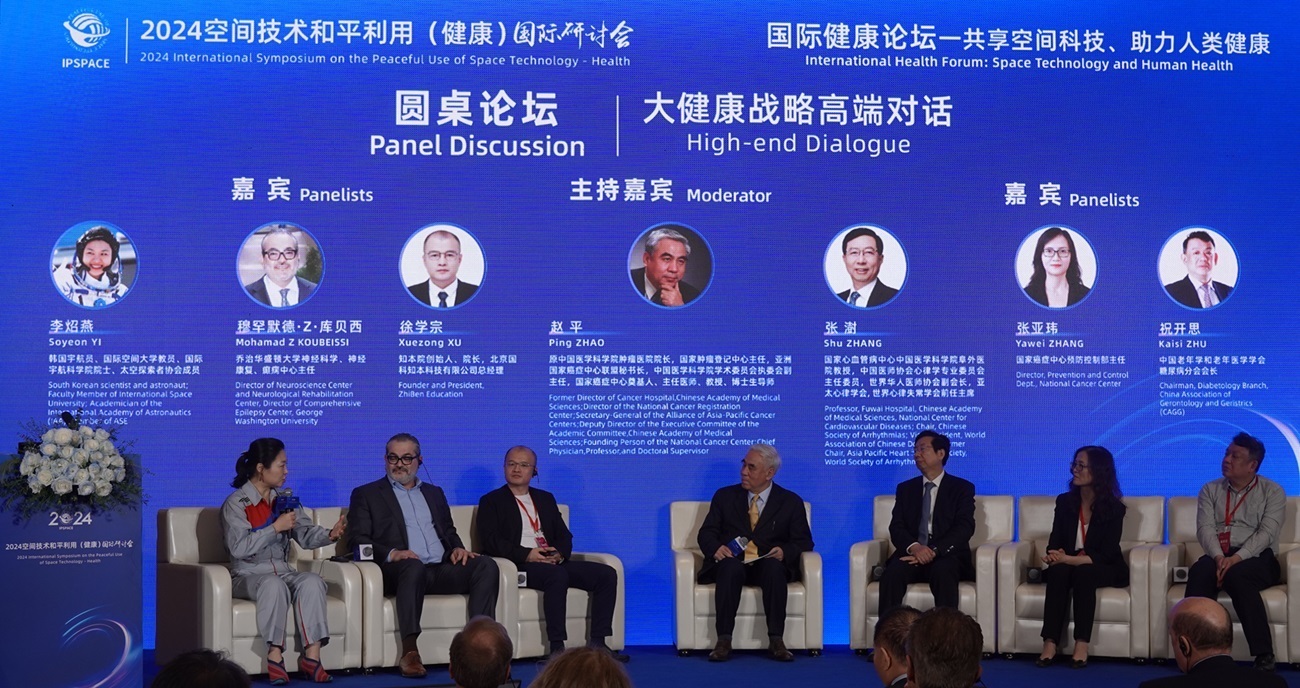
Distinguished Guests
The forum welcomed a distinguished lineup of speakers and participants, including:
- Jean-Michel Contant, IPSPACE Co-Chair, Secretary General, International Academy of Astronautics (IAA).
- Andy Turnage, IPSPACE Co-Chair; Executive Director, Association of Space Explorers (ASE).
- Christian Feichtinger, IPSPACE Co-Chair; Executive Director, International Astronautical Federation (IAF); Academician of the International Academy of Astronautics (IAA).
- Qing Zhang, Member of the Standing Committee of the 13th National Committee of the Chinese People's Political Consultative Conference (CPPCC), Academician, International Nuclear Energy Academy; Professor, Institute of Nuclear and New Energy Technology and Department of Computer Science and Technology, Tsinghua University; Former Deputy Secretary of Party Leadership Group, Deputy Chairman, Member of Secretariat, China Association of Science and Technology.
- Oleg Orlov, President of the Institute of Biomedical Problems (IMBP), Russian Academy of Sciences.
- Tony Antonelli, Former NASA Astronaut.
- Wenfeng Ding, IPSPACE Co-Chair, Director, Special Fund for the Peaceful Use of Space Technology, Western China Human Resources Development Foundation.
- Patrick Duvaut, Vice President, University Paris-Saclay.
- Harley Seyedin, Ph.D., winner of the 2017 Oslo Business for Peace Award.
- Anatolii Artsebarskii, former Soviet cosmonaut.
- Mark Belakovsky, Director, The Institute of Biomedical Problems (IBMP) of the Russian Academy of Sciences.
- Huda M. Ayas, Associate Dean, George Washington University School of Medicine.
- Sergey Panomarev, D.Sc., Head of Laboratory, IMBP RAS.
- Bernard Foing, Executive Director, International Lunar Exploration Working Group.
- Soyeon Yi, South Korea’s first astronaut and Faculty Member of the International Space University.
- Vyacheslav Shurshakov, Head of Radiation Safety, IMBP RAS.
- Mingda Huang, Chair of the World Health Industry Conference’s Executive Committee.
- Neil Mallon Bush, Founder and Chairman, George H.W. Bush Foundation for U.S.-China Relations.
- Gilles Pargneaux, Former Member of the European Parliament and Expert on Public Health and Food Safety.
- David Leebron, the 7th President, Rice University.
- Ping Zhao, Former Director, Cancer Hospital at the Chinese Academy of Medical Sciences.
- Mohamad Z. Koubeissi, Director, Neuroscience Center, George Washington University.
- Xifeng Wu, M.D., Ph.D., China National Top Talent Expert; Zhejiang Province Top Talent Expert; Dean and Professor, Zhejiang University School of Public Health; Vice President, The Second Affiliated Hospital of School of Medicine; Executive Dean, D. H. Chen School of Universal Health of Zhejiang University; Director, National Institute for Data Science in Health and Medicine; Director, Center for Big Data Research in Medical Insurance & Health Policy, Zhejiang University.
- Yongjian Wu, Director of Coronary Artery Disease Center, Fuwai Hospital, Chinese Academy of Medical Sciences.
- Nian Xin, Part-time Professor, Beijing Institute of Technology (BIT); Deputy General Manager, BIT Genshu.
- Ying Liu, Executive Vice Secretary-General, China Electronics Chamber of Commerce.
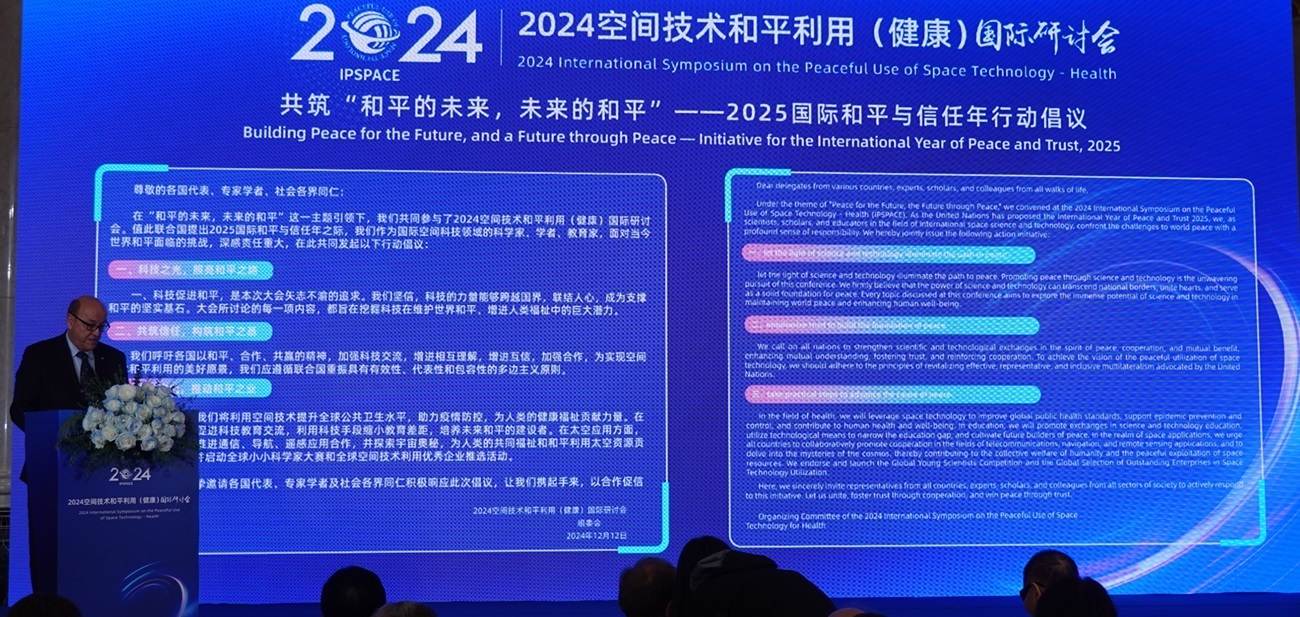
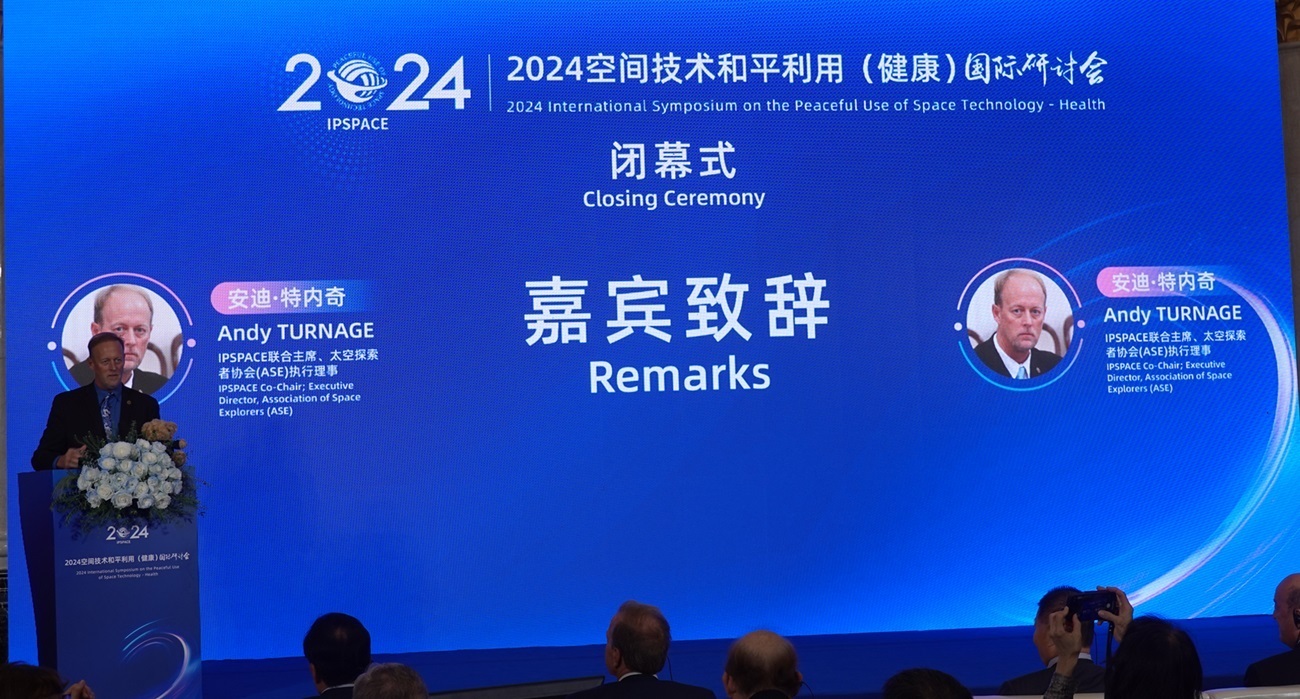
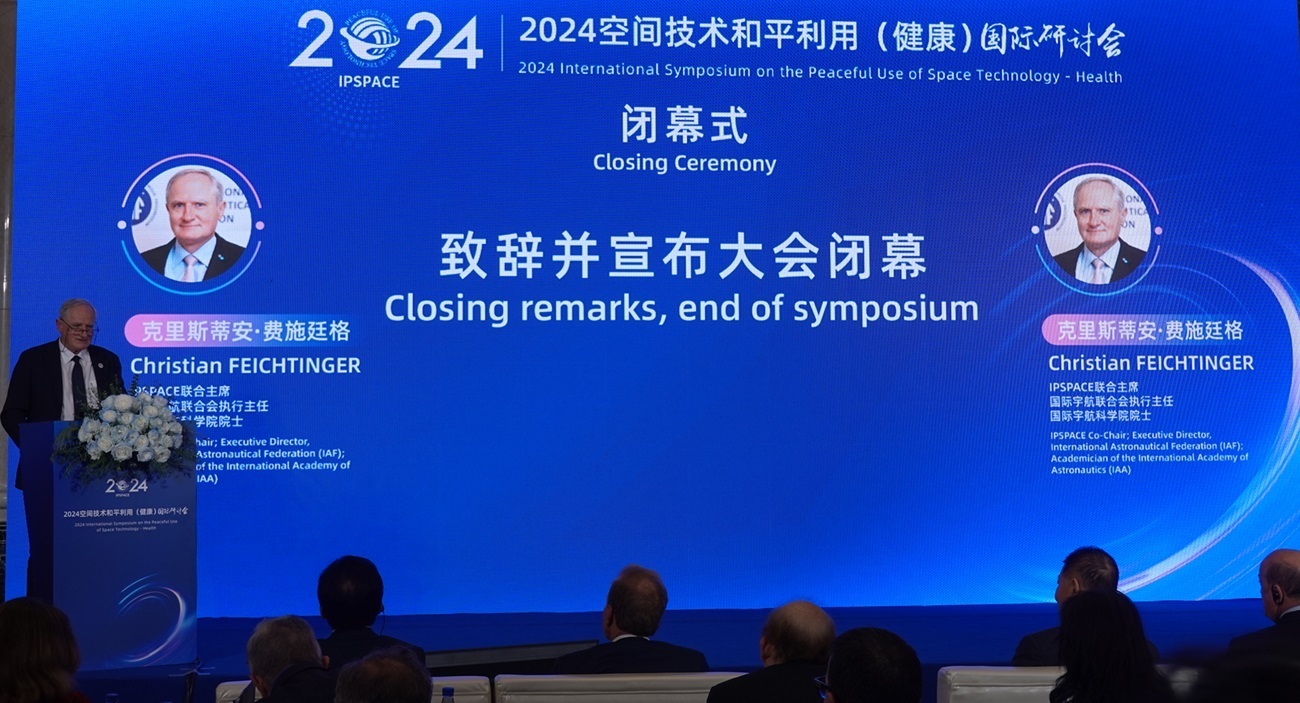
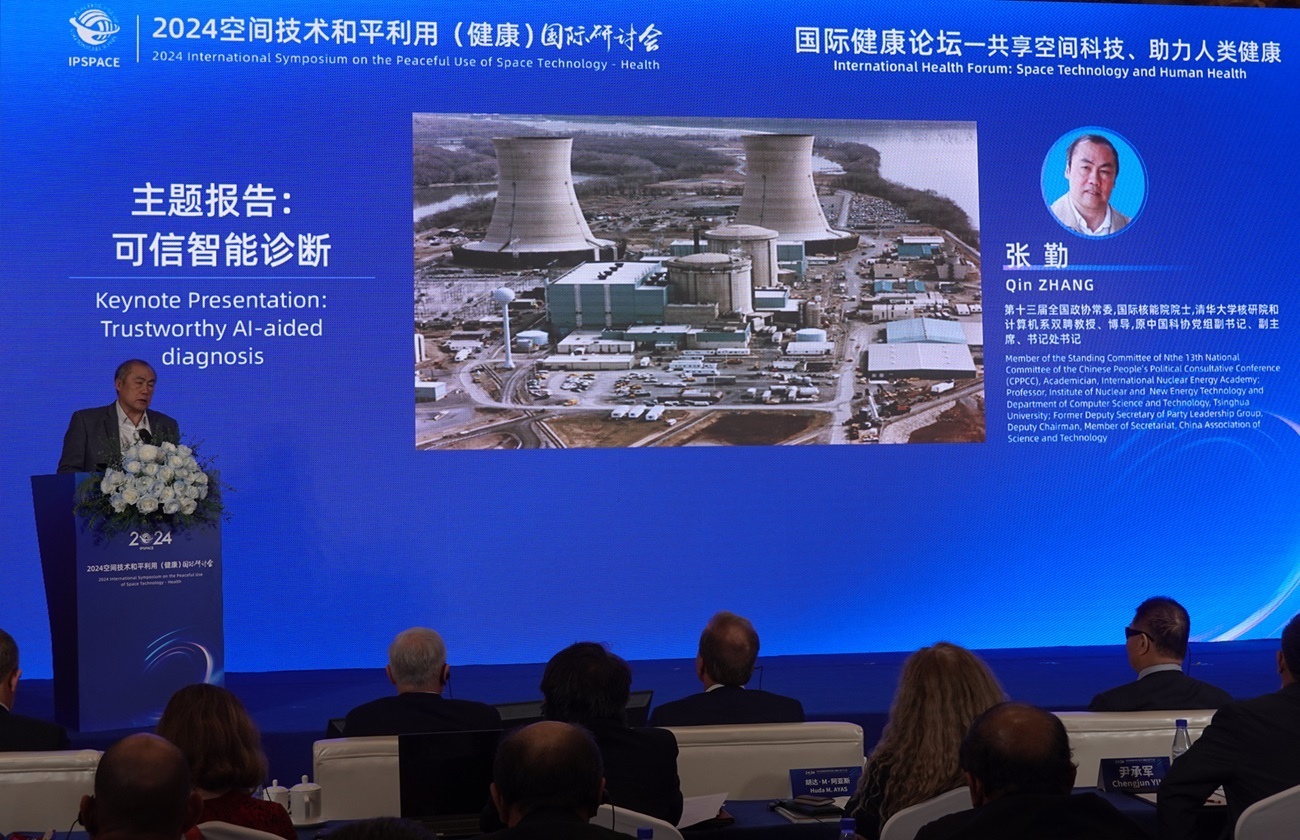
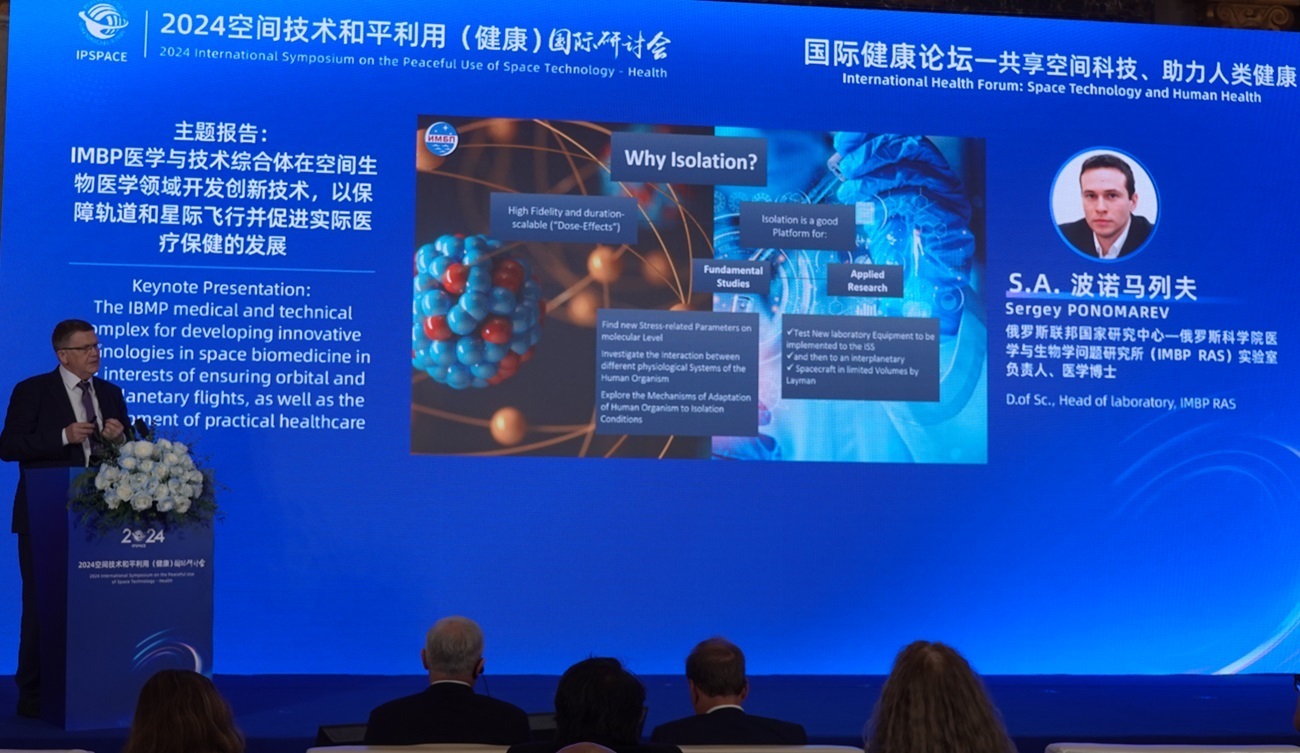
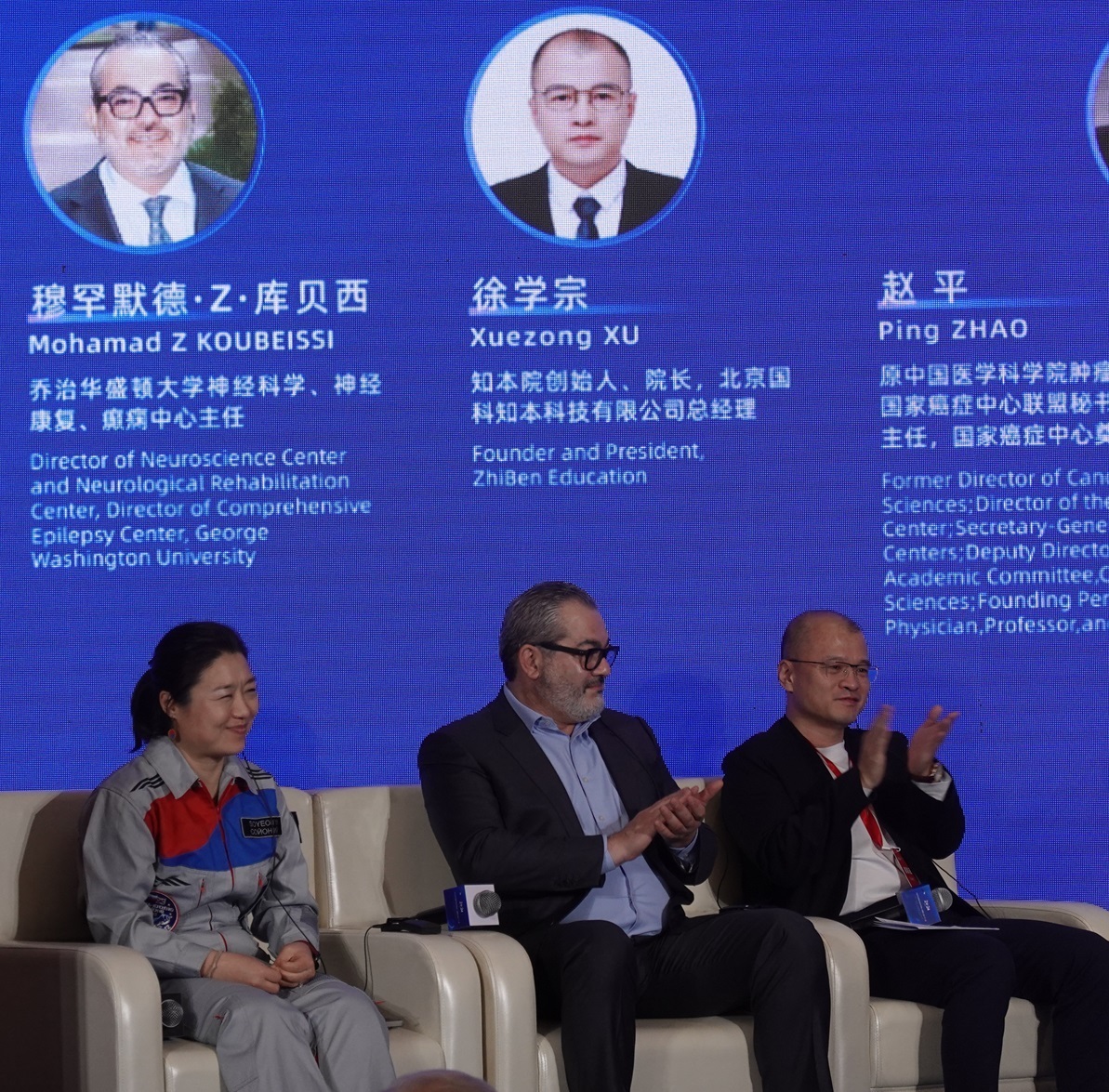
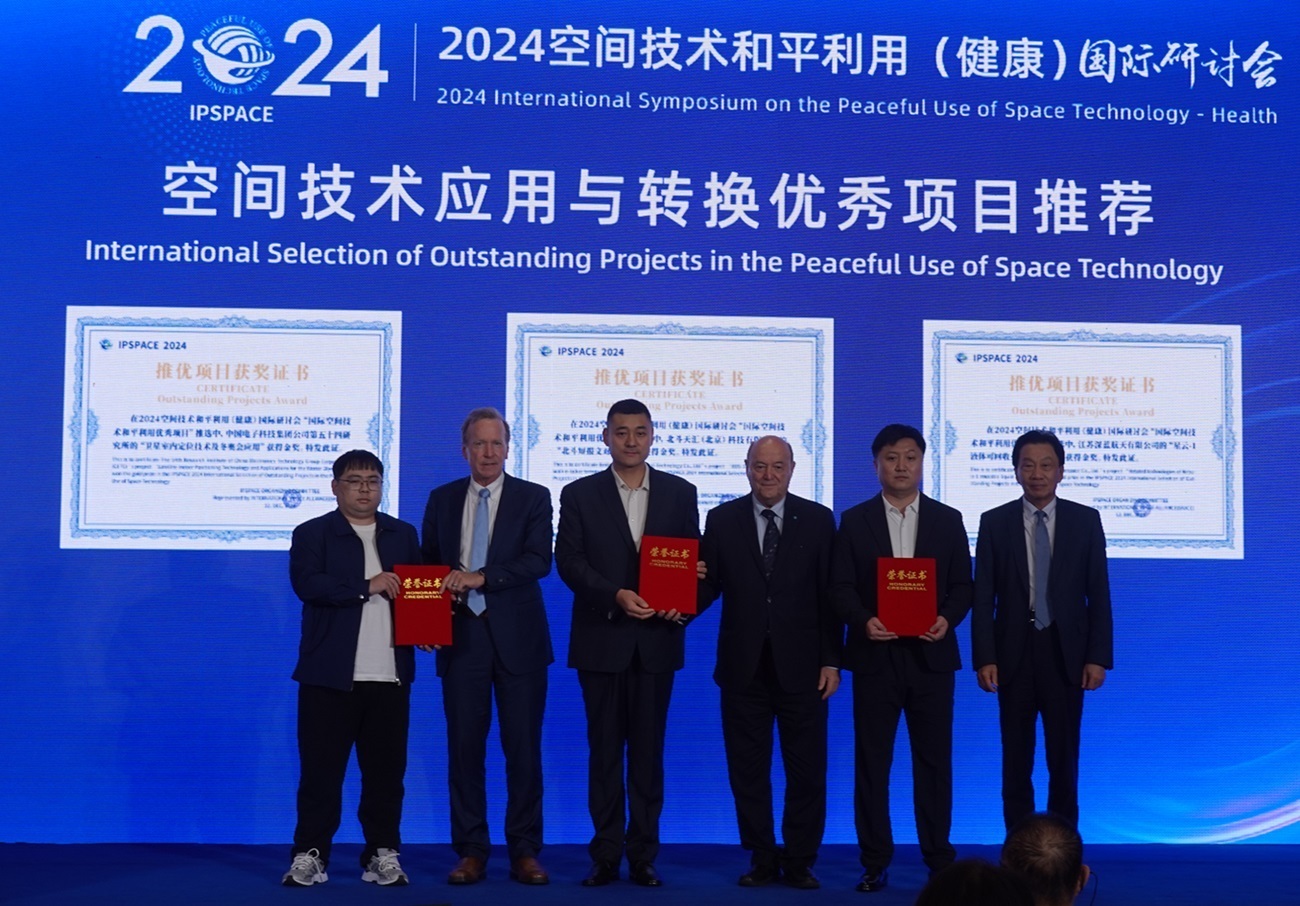
Remarks from Global Leaders
Neil Mallon Bush, founder and chairman of the George H.W. Bush Foundation for U.S.-China Relations and honorary chair of IPSPACE, lauded the forum for fostering international collaboration. He stated, “This conference is setting a great example of what should be happening worldwide. The integration of space technologies into health solutions offers transformative potential to improve the quality of life for people globally.” Bush emphasized that such efforts not only advance technology but also contribute to global sustainability and peace.
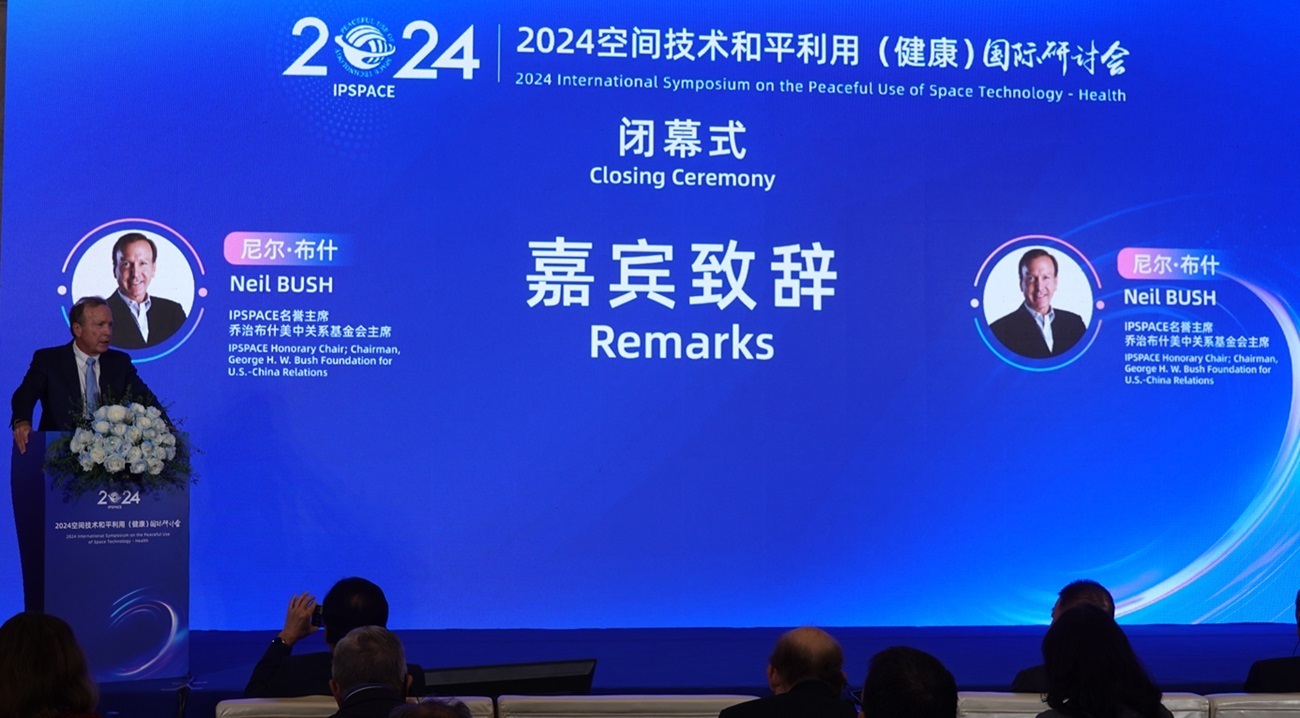
Gilles Pargneaux, former Member of the European Parliament and expert on public health and food safety, highlighted the importance of leveraging space technologies to address global challenges. “Space technologies must be at the service of humanity,” he said. “From fighting climate change to improving public health and education, these innovations can make the world a more equitable and prosperous place.” Pargneaux concluded with an inspiring message: “You are knights of the sky. You are also knights of peace. You are finally knights of our future that will be filled with well-being thanks to space technologies.”
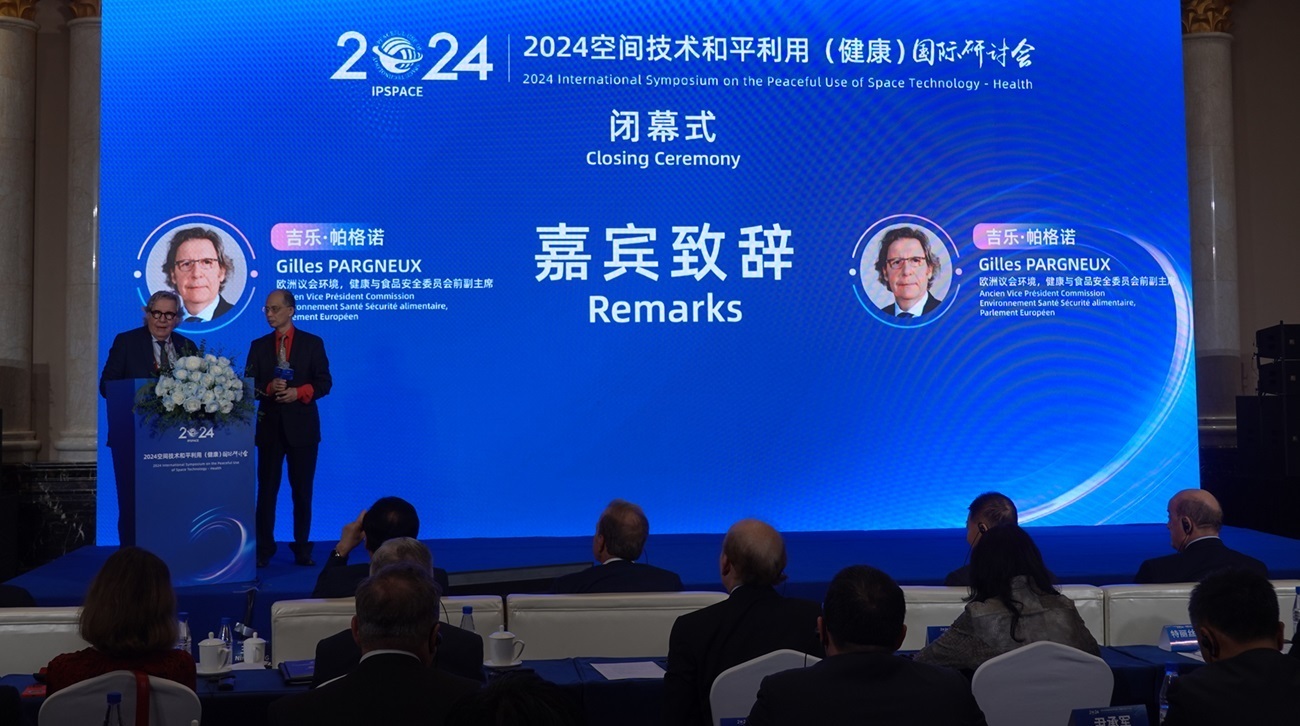
Jiandong Wu, Leader and Chief Expert of China’s National 12th Five-Year Plan Special Project Group, reflected on IBspace’s evolution over the past seven years. “From its inception, IBspace was envisioned as a platform to promote the peaceful application of space technology through collaboration between scientists, entrepreneurs, and social activists,” Wu said. He highlighted how IBspace has grown into a leading transnational forum for space innovation and the pivotal role it plays in shaping global strategic initiatives.
Wu emphasized a transformative vision for the future, likening the emerging era to a shift from the historical globalization model of "New York-London-Hong Kong" to a new triad of "Houston-Hainan-Prussia." This new framework integrates innovation hubs across science, technology, and aerospace to foster collaboration and economic growth. He further proposed leveraging regional strengths, such as Hainan’s special economic policies and Houston’s educational and aerospace expertise, to create exponential growth opportunities in the global space industry.
Wu concluded with a call to action for continued collaboration: “In this spirit of shared responsibility and collective innovation, we must continue to work together and make a meaningful difference for the future of space technology and its benefits for humanity.”
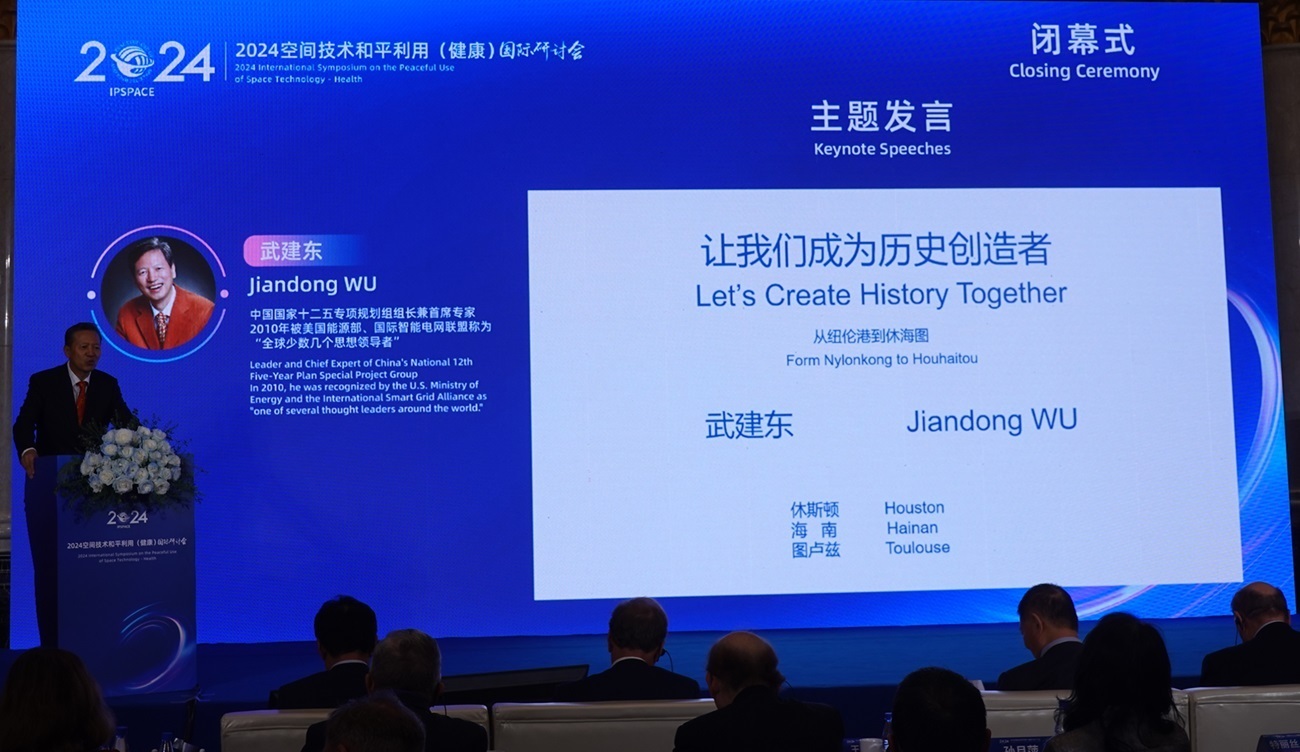
A Vision for the Future of Health and Space
As the forum concluded, speakers emphasized the need for sustained investment and collaboration in this emerging field. In his closing remarks, Jichen Du, General Manager of Aerospace Medical & Healthcare Technology Group, highlighted the critical role of public-private partnerships in driving innovation. He stated, “The convergence of space technology and human health presents unparalleled opportunities to tackle global challenges and improve quality of life for all.”
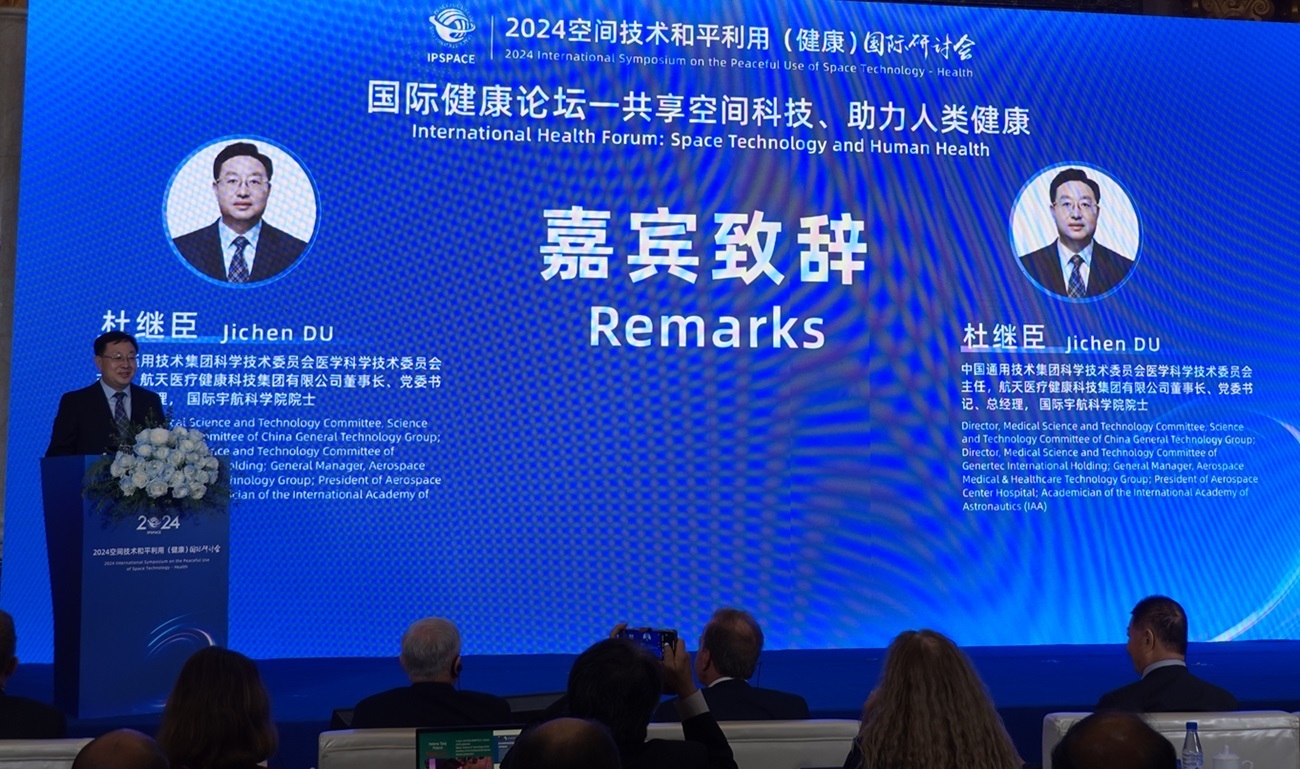
David Leebron, President of Rice University, reflected on the broader implications of the forum, linking the history of space exploration to humanity’s quest for better health and well-being. “The lessons we’ve learned from space travel are reshaping our approach to medicine on Earth, creating a more sustainable and equitable future,” he said.
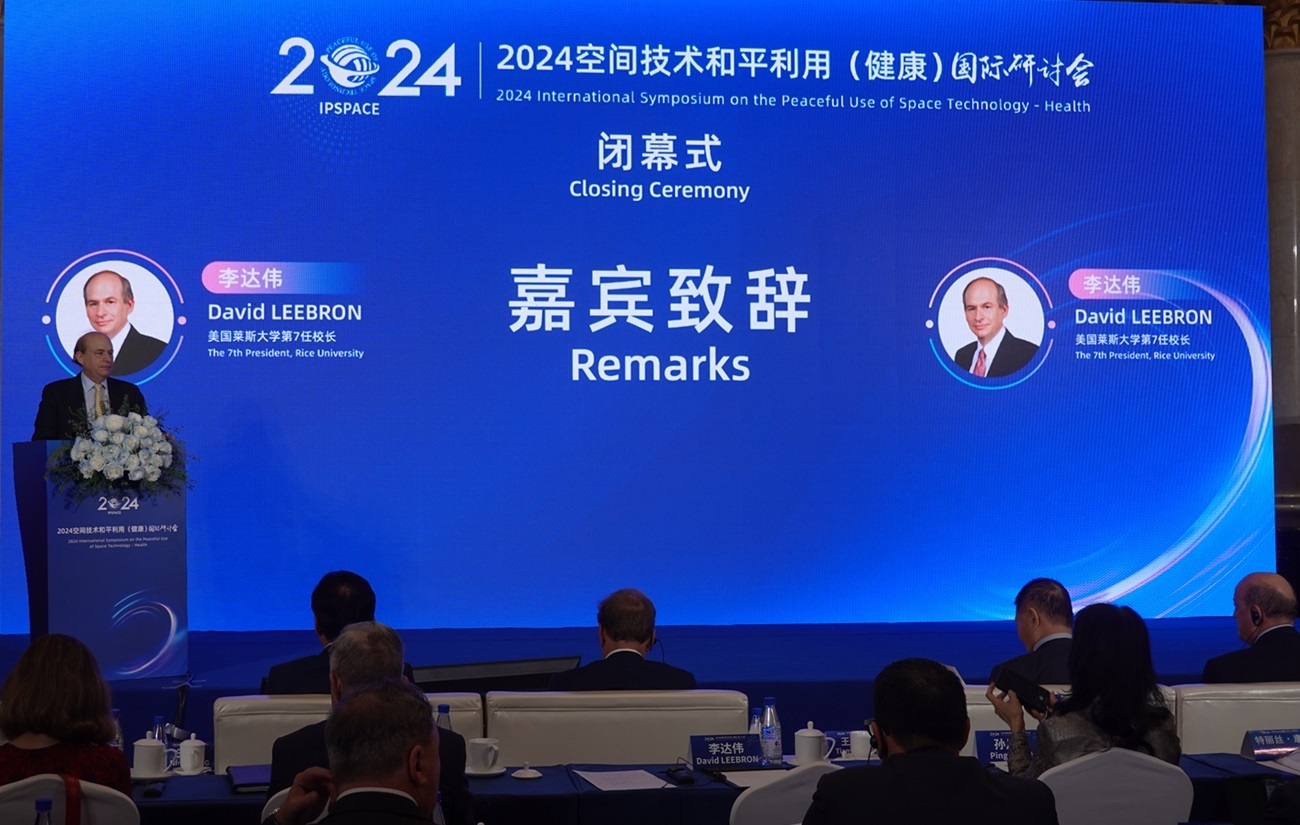
Building Momentum for IPSPACE 2025
With the success of the International Health Forum, organizers announced plans to expand its scope in next year’s IPSPACE 2025. The focus will include deeper investigations into space-enabled health technologies, fostering partnerships across industries and nations. The 2024 forum’s achievements have laid a strong foundation for future collaborations that will push the boundaries of health and technology.
As IPSPACE 2024’s attendees departed Hainan, they carried with them a renewed commitment to leveraging space innovations for the betterment of human health. This year’s forum served not only as a platform for exchanging ideas but also as a call to action for scientists, policymakers, and industry leaders to work together toward a healthier, more interconnected world.
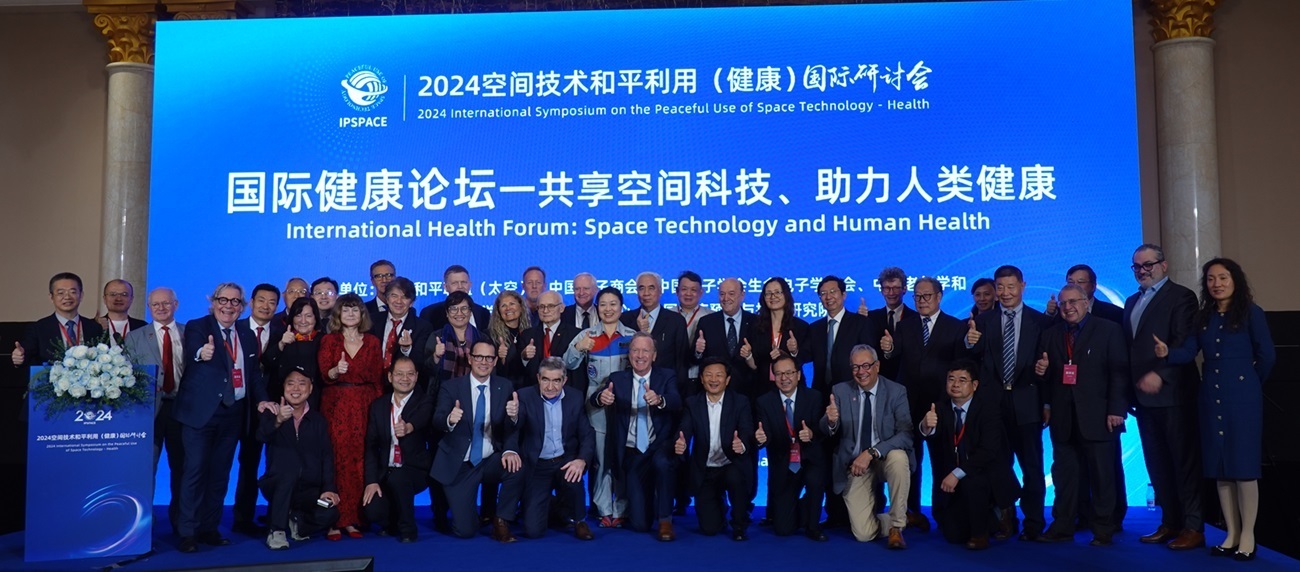
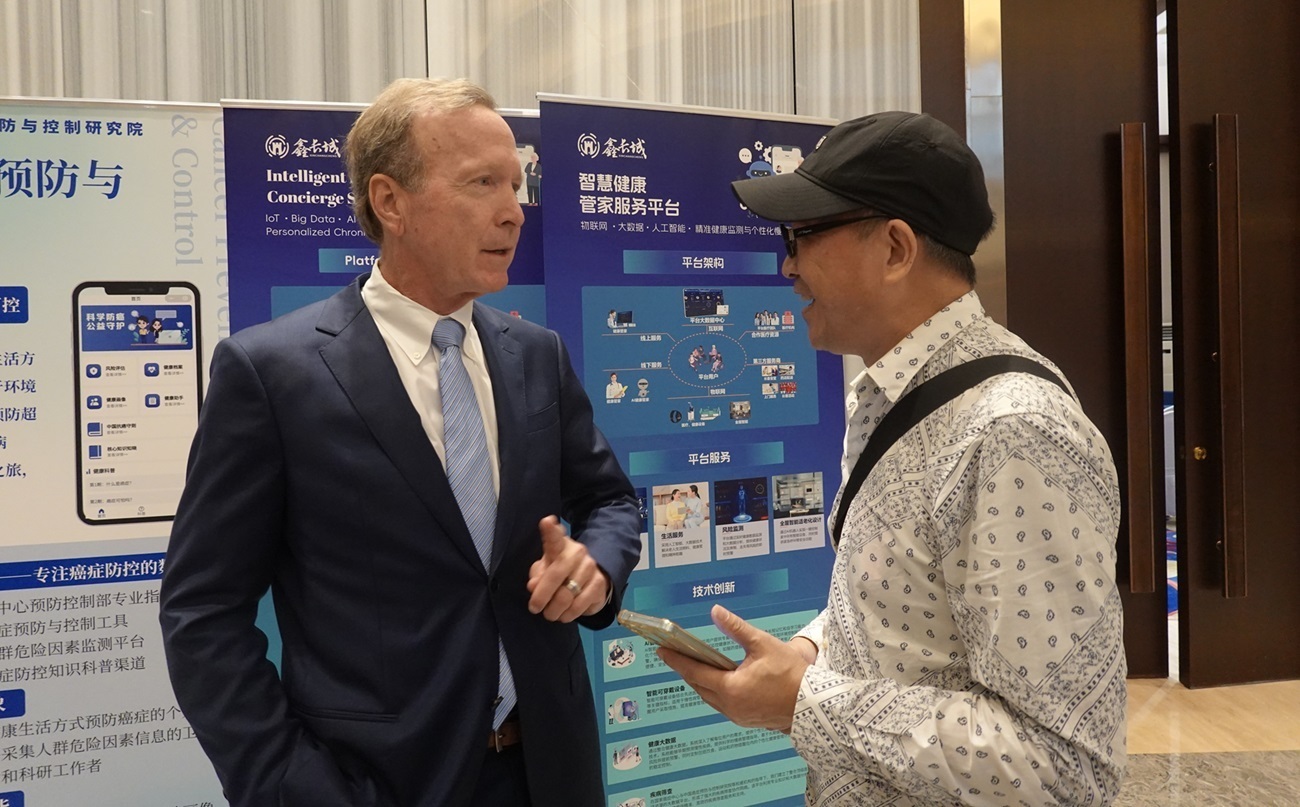
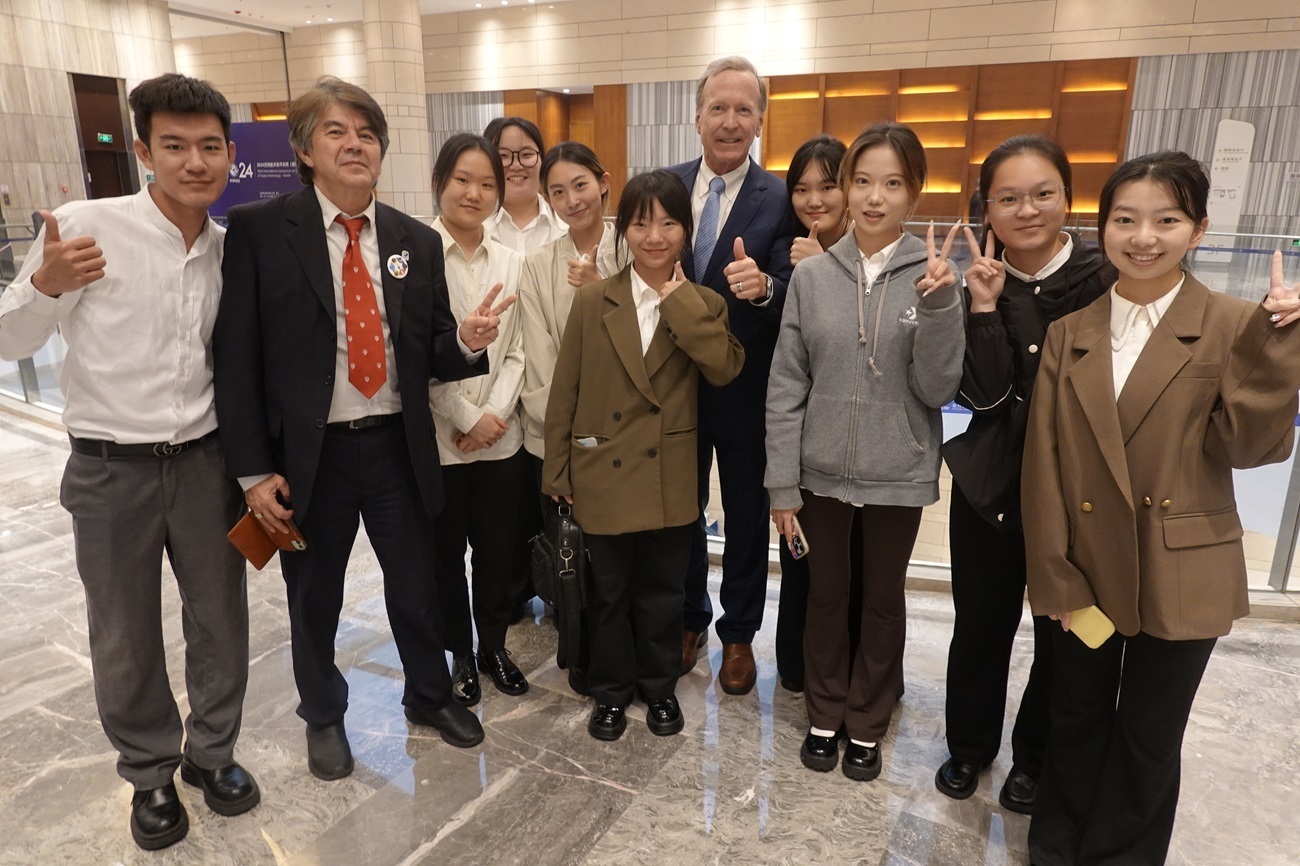
Information contained on this page is provided by an independent third-party content provider. XPRMedia and this Site make no warranties or representations in connection therewith. If you are affiliated with this page and would like it removed please contact [email protected]

